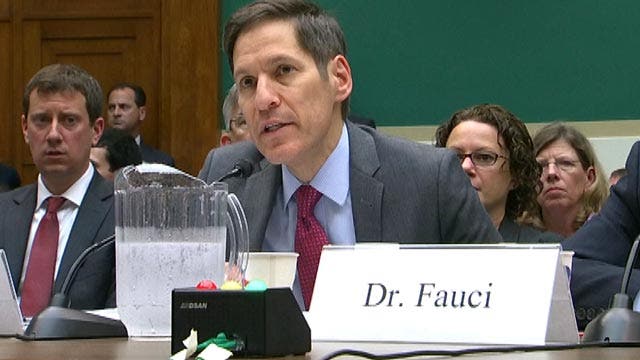Dr. Frieden on why CDC approved travel for Amber Joy Vinson
CDC director testifies at House hearing on agency's contact with second Dallas nurse infected with Ebola
During my years of medical training, back in the good old days, my professors hammered one very important aspect of medicine into our heads over and over: During a medical crisis, someone has to be in charge. There cannot be 20 voices in the room rendering opinions when somebody’s life is at stake.
A prime example is when there is a code blue in a hospital setting where a patient is having a heart attack; there’s always somebody running the code, directing the staff with specific instructions on how to bring the patient back.
You could take that same example to the operating room, where the chief surgeon runs the show, and the rest of the medical staff is there to actively participate in the cohesive approach to saving a patient’s life.
[pullquote]
The Centers for Disease Control and Prevention (CDC) – America’s supposed fearless leader when it comes to public health -- seems to have lost sight of this very basic medical technique, instead pointing fingers and playing the blame game as two health care workers who cared for America’s patient zero, Thomas Eric Duncan, were diagnosed with Ebola virus in the past week. As more details emerge about how they became infected, it seems to point to a lack of leadership.
When the first Dallas nurse to contract Ebola, 26-year-old Nina Pham, was diagnosed, CDC director, Dr. Tom Frieden was quick to call it a breach in protocol – neglecting to acknowledge the fact that we are dealing with a disease that, until now, had no protocol in the United States.
As we learned of the diagnosis of a second Dallas nurse, 29-year-old Amber Vinson on Wednesday, the CDC informed us she had flown to Cleveland to visit family and plan her wedding.
Vinson, Frieden said, had reported an elevated temperature of 99.5 before boarding and seemed to shift the focus onto her for knowingly getting on that plane.
Vinson had called the CDC to report temperature, and was cleared to fly because it did not meet the 100.4-degree threshold, despite the fact that a low-grade fever is one of the earliest known symptoms of the Ebola virus.
Now unidentified federal sources have come forward to say that Vinson “lied” about how she was feeling when she called the CDC to report her temperature, and that her family members reported she was not feeling well during her visit.
A lot of blame is being placed squarely on the victims who contracted this potentially deadly disease, when the agency charged with leading the response continues to drop the ball. Many people might argue that Vinson was a health care worker and should have known better, and that may very well be true – but again, we’re dealing with a disease here that most of America’s doctors and nurses are not familiar with.
All the criticism aimed at the CDC and the other bureaucrats involved with the Ebola response in America is well deserved.
The consequence of that lack of leadership was that two health care professionals became infected, and many others are left wondering whether they’re next. They didn’t breach any protocols, hospital staff didn’t breach any protocols, the city of Dallas didn’t breach any protocols. What all these people did do was face a condition that they had never seen before, while they were left to fend for themselves in the initial hours before the CDC had boots on the ground in Texas.
We’ve heard thinly veiled excuses from Frieden about the CDC’s authority when it comes to practices and procedures at U.S. hospitals which carry no weight because the agency has direct access to lawmakers -- and even the president -- to be granted emergency powers allowing them to oversee the active response to a public health threat -- and provide any medical center faced with Ebola -- the right tools to successfully control the disease. Essentially, the power to lead.
That, my friends, is what every doctor and nurse learns in training: Quality medical care is achieved with strong leadership. It’s a lesson learned by providing active clinical care to in a patient-focused setting.
And that is why I am calling for Frieden's resignation.
Unfortunately, when you get bureaucratic doctors running the show, whose days are spent sitting in meetings, reading statistics and debating policies -- the lack of experience shows during a genuine health threat.









































